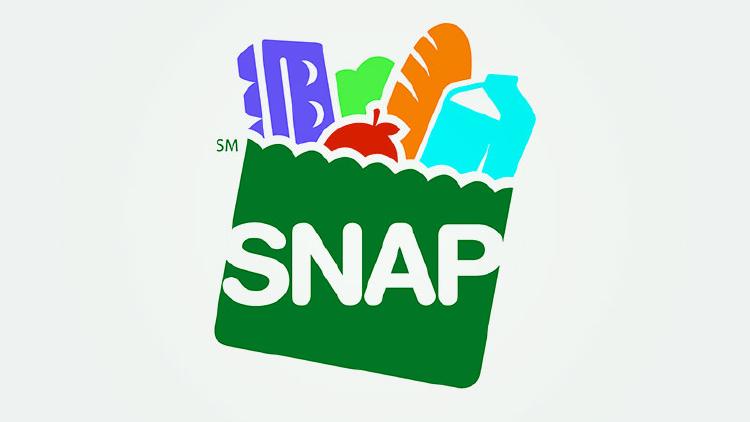Michigan's Supplemental Nutrition Assistance Program (SNAP)
Michigan’s Supplemental Nutrition Assistance Program (SNAP) plays a vital role in supporting low-income individuals and families by providing them with the means to purchase nutritious food.

- john shim
- 4 min read

Michigan’s Supplemental Nutrition Assistance Program (SNAP)
Michigan’s Supplemental Nutrition Assistance Program (SNAP) plays a vital role in supporting low-income individuals and families by providing them with the means to purchase nutritious food. As of 2023, Michigan continues to adapt its SNAP policies to better serve its residents, focusing on accessibility, efficiency, and support for those in need.
Program Administration
Michigan administers its SNAP program at the state level. This centralized administration ensures uniform policy implementation and service delivery across all counties, making the program more efficient and accessible to eligible residents.
Reporting Requirements
Michigan uses both simplified and change reporting systems for SNAP households. Simplified reporting requires households to report changes periodically and when their total countable income exceeds 130% of the federal poverty level. Change reporting requires households to report certain changes in circumstances within 10 days of their occurrence. This dual system allows for flexibility in managing different household situations.
Certification Periods
Michigan certifies households for 12 months under simplified reporting requirements. This certification period balances the need for regular updates on household circumstances with the administrative ease of less frequent interactions, ensuring that eligible households maintain continuous access to SNAP benefits.
Self-Employment Income
Michigan uses an alternative method approved by the Food and Nutrition Service (FNS) to calculate the cost of doing business for self-employed individuals. This method ensures that business expenses are accurately deducted from income, resulting in a fair assessment of eligibility and benefit levels.
Standard Utility Allowances (SUAs)
Michigan mandates the use of Standard Utility Allowances (SUAs) for all SNAP households. By using a standard amount to calculate utility costs, this policy simplifies the process for both participants and administrators, ensuring consistency and fairness.
Treatment of Ineligible Noncitizens’ Income
Michigan counts all but a prorated share of the income and deductions of ineligible noncitizens when determining the eligibility and benefit amount for eligible household members. This policy ensures that the economic contributions of noncitizens are fairly considered without penalizing the eligible members of the household.
Child Support Payments
Michigan treats legally obligated child support payments made to non-household members as an exclusion from income rather than a deduction. This policy encourages the payment of child support by reducing the payer’s gross income considered for SNAP eligibility, thus promoting financial responsibility.
Drug Felony Disqualifications
Michigan has no ban for individuals convicted of drug-related felonies. This inclusive approach allows individuals who have served their time and are meeting all other eligibility requirements to receive SNAP benefits, supporting their reintegration into society.
Work Requirements and Disqualifications
SNAP household members aged 16-59 in Michigan must comply with general work requirements, including work registration, job acceptance, and participation in employment and training programs if mandated. Noncompliance without good cause results in disqualification periods that increase with each subsequent violation. Michigan applies extended disqualification periods, which may include longer or permanent disqualification for repeat noncompliance, ensuring a balance between encouraging employment and maintaining access to essential food assistance.
Employment and Training Programs
Michigan offers voluntary participation in SNAP Employment and Training (E&T) programs, providing SNAP participants with opportunities to improve their job skills and employment prospects. These programs are designed to meet the needs of participants, helping them achieve greater self-sufficiency and stability.
Broad-Based Categorical Eligibility (BBCE)
Michigan adopts broad-based categorical eligibility, which extends SNAP benefits to households receiving non-cash benefits funded by Temporary Assistance for Needy Families (TANF) or Maintenance of Effort funds. This policy simplifies the application process and broadens access to SNAP for low-income households.
Transitional Benefits Alternative (TBA)
Michigan does not currently offer Transitional Benefits Alternative (TBA) to households leaving TANF or state-funded cash assistance programs. Instead, households must reapply for SNAP benefits under the regular application process.
Demonstrations for Elderly and Disabled Individuals
Michigan participates in the Standard Medical Deduction (SMD) project, simplifying the process for households with elderly members or individuals with disabilities to claim medical expense deductions. This project allows these households to use a standard deduction amount instead of calculating actual expenses, streamlining administrative procedures and reducing paperwork.
Combined Application Projects (CAP)
Michigan operates a Modified Combined Application Project (CAP) in partnership with the Social Security Administration (SSA) and the Food and Nutrition Service (FNS). This project streamlines the application process for individuals receiving Supplemental Security Income (SSI), using data from SSA to send simplified SNAP applications to eligible households and ensuring cost neutrality.
Michigan’s SNAP program is a trusted and adaptive system designed to meet the needs of its low-income residents. Through a combination of federal options and state-specific policies, Michigan ensures that SNAP remains accessible, efficient, and supportive of those in need. By continually refining its policies and practices, Michigan helps to enhance the food security and overall well-being of its communities.